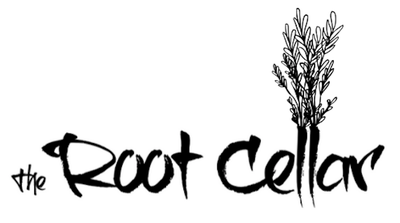ReThink Red Deer and supporting organizations have secured funds from the Government of Canada “Canada 150 Fund” to commemorate Canada’s 150th anniversary of Confederation in 2017.
This $23,000 grant complements the ongoing Piper Creek Restoration Agriculture Project (2014 - 2019) support from Environment Canada’s, “Environmental Damages Fund”. Over the course of five years, the “Piper Creek Restoration Agriculture Project” is repairing and improving the historical impacts on an important riparian and agricultural area in the Red Deer River watershed by regenerating and enhancing Red Deerians' understanding of, and relationship with, the natural world.
“Canada's 150th anniversary is the perfect opportunity for us to celebrate our history of food growing together as Canadians while we add to and leverage the ecological restoration work already underway on Piper Creek!”, says Jonathan Wieler, President of ReThink Red Deer.
Project partners Trout Unlimited Canada and Cows and Fish (Alberta Riparian Habitat Management Society) are helping integrate a 15,000 square foot edible forest and pollinator garden with the overall ecosystem restoration of the project site. This perennial garden will feature 150 varieties of edible, medicinal, and pollinator plants incorporating as many native species as possible.
According to Trout Unlimited Biologist, Elliot Lindsay, “Improving riparian and aquatic health in the Piper Creek watershed will benefit the flora and fauna of the area, as well as the community. Restoring ecosystem services like flood and drought mitigation, and reliable supply of clean water, is one of the greatest benefits of protecting and restoring natural areas.”
Additionally among the project partners and supporting organizations are The Red Deer River Naturalists, The Red Deer River Watershed Alliance, The Waskasoo Environmental Education Society, Alberta Food Matters, the Central Alberta Chapter of Trout Unlimited Canada, the Canadian Association for Rainwater Management - Prairie Chapter, and The City of Red Deer as landowner holding observer status.
During the week of September 26th, 2016, the project Steering Committee organized the removal of the aging creek crossing which included a set of Field Days and planting sessions through the end of October to educate local residents on the benefits of living with beavers. The planting sessions focused on beaver habitat restoration and ensuring the long term health of the creek. In the spring of 2017, a week-long food forest and pollinator garden design and construction course was held, led by Canadian experts in these two areas. The focus was on learning the theory of edible forest gardening and pollinator habitat construction including hands-on planting of the garden alongside local volunteers under the expertise provided by Cynthia Pohl of Living Lands Landscape and Design and Javan Bernakevitch of All Points Land Design. Check out the pictures of the planting of the food forest HERE.
For more information on the Canada 150 Food Forest and Pollinator Garden project see the summary below. For more information on the Piper Creek Restoration Agriculture Project please contact Rene Michalak, Project Lead at info (at) rethinkreddeer.ca
Canada 150 Edible Forest Garden Project Summary:
The Canada 150 Edible Forest Garden project brings the community together to create the largest perennial "food forest" and pollinator garden they have ever seen and leaves a legacy for future generations to literally enjoy the fruits (and nuts) of their labour. Together we are recognizing the historical and native (aboriginal) food growing heritage of the area by selecting, planting, and tending to 150 varieties of trees, shrubs, groundcover, and pollinator plants to create a 15,000sq.ft edible forest garden. Interest in local Canadian food and the practice of community gardening in Red Deer has been growing steadily in demand since 2009. Canada's 150th birthday is the perfect opportunity for us to celebrate our history of food growing together while we add to and leverage the ecological restoration work underway on Piper Creek. We do this by building skills and relationships for sustainable community living as Canadians. The method of relationship development we are using is called "regenerative agriculture" or "permaculture design". This method helps us build relationships with each other and the natural environment by leveraging the ecological and riparian restoration work of the neighboring Piper Creek Restoration Agriculture Project. Skill building is achieved through a week-long edible forest gardening course that will be offered to educate participants and recruit volunteers for the actual planting of the food forest and pollinator garden, led by Canadian experts in the field of permaculture design and aboriginal residents willing to share their knowledge of and relationship with native plant communities of the area. Commemorative and interpretive signage serves to inform visitors to the site of the importance of this project, how it seamlessly integrates people with nature via annual and perennial food growing with riparian ecology restoration, and educates them on the practice of edible forest gardening so they can take the ideas back home to enjoy the abundance in their own front and back yards.
Check out the Piper Creek Restoration Agriculture Project including pics of the Canada 150 Food Forest and Pollinator Garden progress HERE

